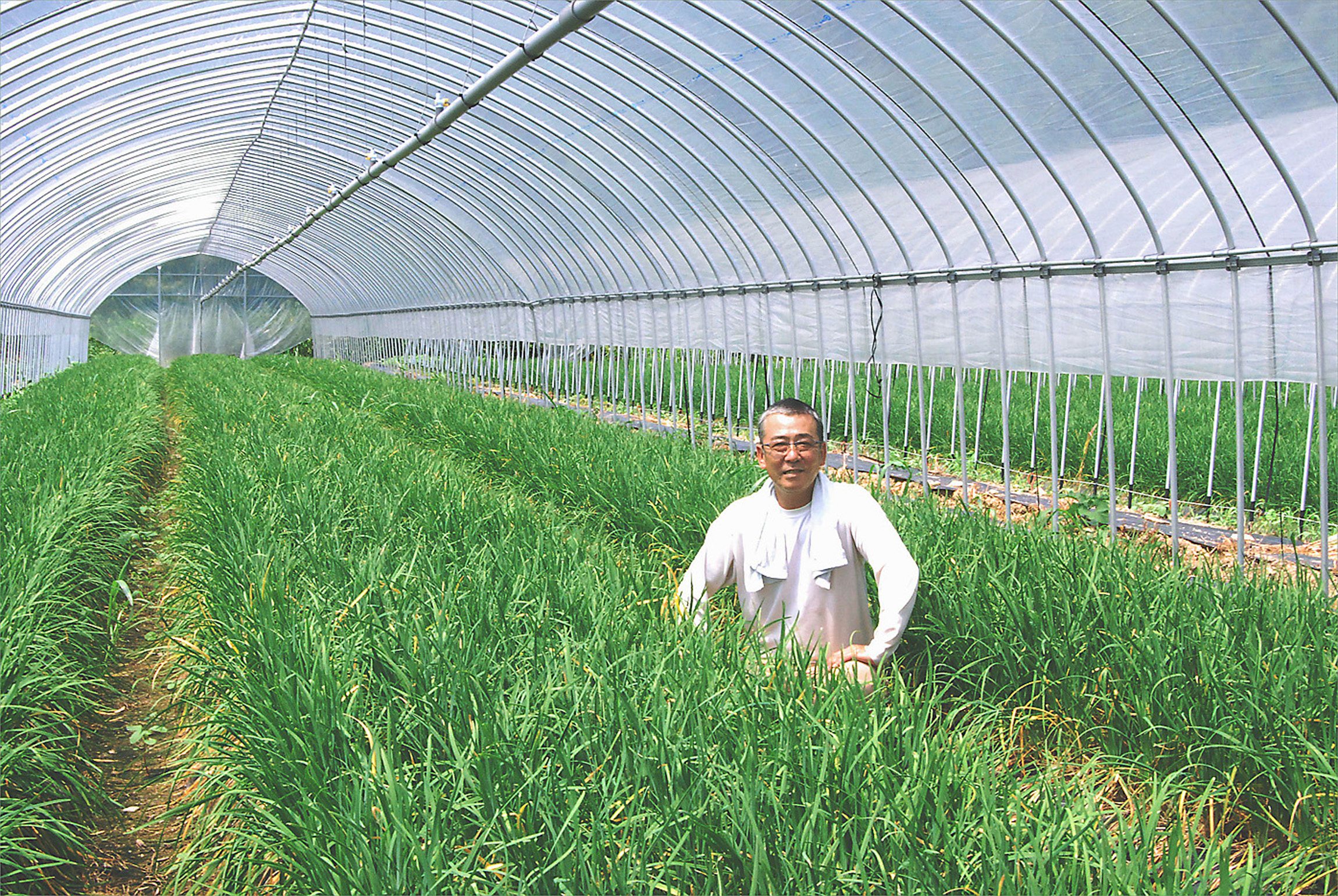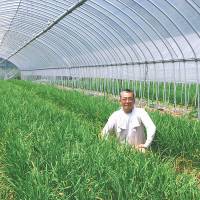With revenue from its mainstay railway business slowing, Kyushu Railway Co. is aiming to generate annual sales of ¥1 billion from its farming ventures in two years, a roughly fivefold increase from fiscal 2012.
JR Kyushu entered the farm business in 2010, looking for new sources of revenue as well as hoping to rev up the local farm sector, a segment of the regional economy that is going downhill. It currently manages around 16 hectares of land and grows seven types of produce.
"Initially, we did not have farming facilities or techniques," said Yoshinori Shirasaka, 45, head of JR Kyushu Farm Oita, which is growing Chinese chives in the suburbs of the city of Oita.
JR Kyushu began to study entry into agricultural in 2006. After consulting with different prefectures, it found Oita the most cooperative, leading to cultivation of Chinese chives as its first project.
Shirasaka, formerly involved in the catering business at a JR Kyushu affiliate, apprenticed with local farmers for half a year and managed to expand the chive field tenfold to 4 hectares with the help of a farm co-op.
JR Kyushu decided to venture into agriculture due to the decline of passengers stemming from the shrinking population. "The railway business alone will not be profitable," said JR Kyushu President Koji Karaike.
JR Kyushu's passengers totaled 314 million in fiscal 2012, down about 3 percent from the peak set in fiscal 1996. Already, 60 percent of group revenue comes from businesses other than railway operations.




